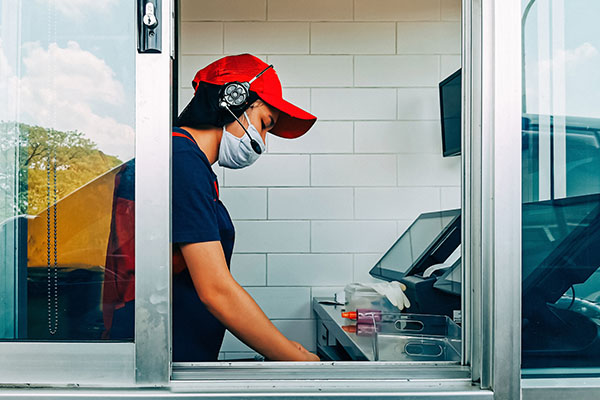Everyone is being affected by this pandemic. We are worried about our health, our friends and family, and our jobs. For workers, both those who have been working through the pandemic and those who are slowly returning to work, safety is and will continue to be a primary concern. What legal protections do workers have if they complain about work conditions or they feel their workplace is endangering their well-being?
Imagine you are a fast food worker at a major chain. You work the drive-through, and your employer does not provide you with protective equipment. They will not allow food to be delivered to the customer unless it is through the drive thru window, even though it is less than the recommended 6 feet distancing we are cautioned to adhere to. You complain that you feel unsafe and that the company is making you violate the state’s order. You find yourself retaliated against by your employer. Your weekly hours reduced, or worse: you are fired.
This very scenario played out this Spring in Chicago. Employees sued McDonald’s and complained the Governor’s order was not being followed at certain locations and that McDonald’s was not adequately protecting them from the risk of contracting COVID-19 at work, enforcing their safety policies or training employees to social distance. Those employees were victorious this week after a Court granted an injunction. The Judge has ordered McDonald’s to adopt new safety measures for social distancing, training, and masks.
It is likely we will see many of these same situations play out over the next year or so as the virus continues to affect our way of life. We have already seen a rise in terminations resulting from employee safety complaints and concerns. Employees do have recourse should they be retaliated against or terminated for speaking out the fear of COVID-19 transmission and the lack of safety equipment or protocols at the workplace. Your employer likely has a duty under state or federal law to provide a reasonably safe work environment for its employees. Additionally, it is likely against public policy to fire someone because they raised legitimate concerns of safety in addition to being forced to violate an order. Workers who have been retaliated against or fired for voicing their concerns for their health and safety while at work should consult with an experienced employment attorney.
Authored by Karen Munoz
